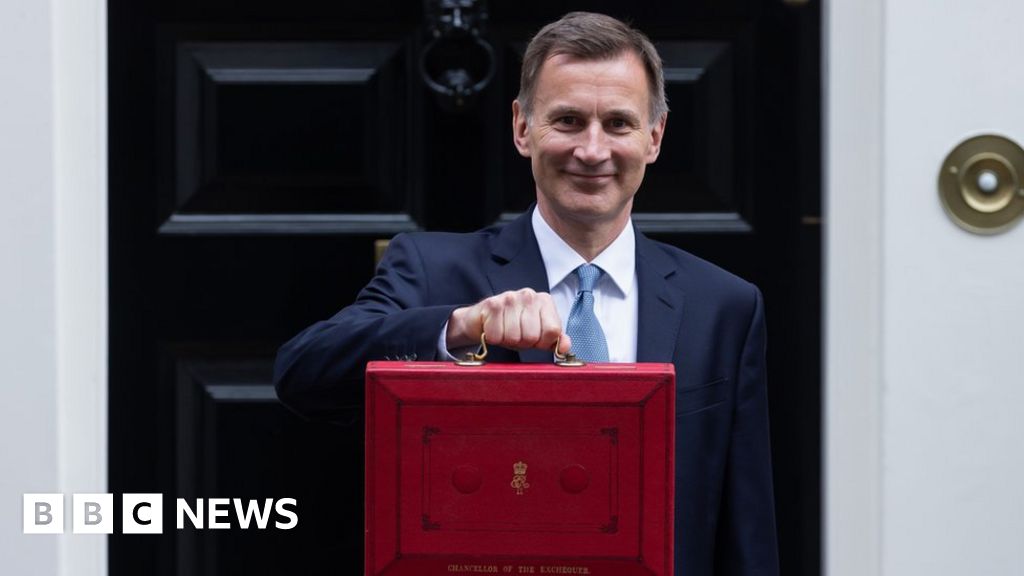- Written by Faelia Massoud
- business reporter
image source, Getty Images
Prime Minister Jeremy Hunt has hinted at tax cuts in next spring's budget.
Britain's general election promise to cut taxes may have to be reversed as the UK economy faces its worst problems since the 1950s, a leading think tank has said.
“Today's tax cuts increase the risk of tomorrow's tax increases and spending cuts,'' the Institute for Fiscal Studies said.
He added that politicians need to be honest about the tough economic trade-offs.
But the Treasury said the economy was turning a corner and growth meant increased funding for public services.
Paul Johnson, director of the IFS, said: “If the party seeking to form the next government is promising tax cuts, let's ask them the extent of the spending cuts.”
“While it may be easy to announce immediate tax cuts without any hint as to whether the country will stop doing what it is doing or what taxes will rise in the future, this trade-off cannot be avoided. ” states the IFS report. Said.
Governments get most of their income from taxes, but if they can't cover their expenses, they have to borrow more, raise taxes, or cut public spending.
But the IFS said it would be harder for the next government to reduce the UK's debt relative to its economic output “than any Parliament since the 1950s” in the immediate aftermath of the Second World War.
The national debt has plummeted as the government spent billions of dollars to support the economy during the coronavirus pandemic and subsidized energy bills after energy prices soared in part because of Russia's invasion of Ukraine. is at a level not seen since the 1960s.
Interest payments on that debt, combined with slower growth, will make it even more difficult to reduce the debt-to-GDP ratio.
The IFS said that with the two main parties across the UK, the Conservatives and Labor, pledging to reduce the national debt as their share of national income declines, there is “limited scope for significant tax cuts and spending increases”. ” he added.
Prime Minister Jeremy Hunt signaled last week that he would aim to cut taxes in his spring budget.
In an autumn statement last November, Mr Hunt claimed the Conservatives had delivered the biggest tax cuts in decades to boost Britain's struggling economy and boost incomes, with millions of people eligible for tax cuts. announced £10 billion in national insurance cuts and an increase in benefits. .
However, the UK's overall tax burden remains at record high levels, largely due to the tax threshold freeze.
The IFS said slowing economic growth and a cost-of-living crisis meant the outlook was “dire” no matter which government won.
Ben Zaranko, senior research economist at the IFS, told the BBC that long-term challenges to the economy, such as an aging population and tough tackling of climate change, “will start to materialize” in this decade.
but The Treasury said: “Measures to halve inflation and ensure that debt as a share of the economy falls mean we are now starting to turn the corner, which is why we are delivering tax cuts to 27 million working people this month. can be given.”
A spokesperson said: “The best way to sustainably fund public services in the future is to grow the economy. The UK has grown faster than France, Germany and Japan since 2010, and the OBR [Office for Budget Responsibility] “Our actions in the spring and fall will result in the largest boost on record.”
But a Conservative Party spokesperson said the “unfunded spending pledges will ultimately mean thousands of pounds in tax increases for working people, because Keir Starmer has no plan and how Because I can't say if I'm going to pay for it.”
The Labor Party has been contacted for comment.

